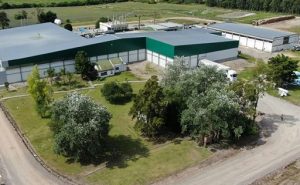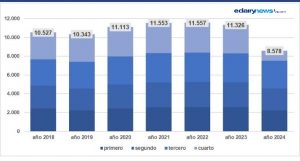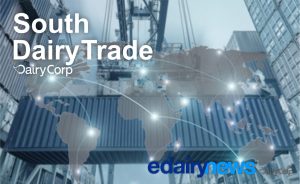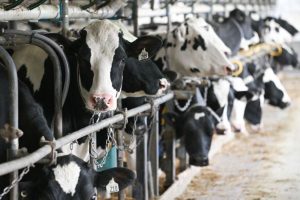
Damian Morais: I would like to start by asking you for a perspective on how you see the international market next year, have we had a year with good prices, do you think that next year they can be sustained?
Martin Berrutti: At Estancias del Lago we analyze the market fundamentals. These should be sustained because we visualize that climates, as well as the limitations of the main productive poles will impact on the generation of raw material. In this context, Australia suffers a structural drought, generating a decrease. New Zealand is at its productive peak, adding high taxes due to environmental aspects if growth limits are exceeded. At the same time we are witnessing the presence of an inflationary Europe with high costs and also impacted by a dry climate with high temperatures. In addition to the high cost of production, there is a shortage of raw materials. World trade has been impacted by the non-presence of the old continent as an exporter of skim milk. They turned their production to cheese and other high value-added items. On the other hand, the USA also went through climatic and logistic problems that affected internal and external trade dynamics. What is left then? Uruguay and Argentina. Argentina is in a situation of political and financial instability, currency, inflation and withholding taxes that threaten the profitability of its companies. Uruguay has also been affected by lower production. Therefore, as I said at the beginning, the fundamentals of supply are firm for the increase in prices that should strengthen.
However, on the demand side, we know that the big driver, price regulator and buyer of thousands of tons is China. There is no doubt that when this huge market normalizes its life, which is now semi-closed, demand will resume its rhythm. We saw that last year they imported almost 800,000 tons and this year their presence, in spite of all the limitations, has not been so bad. It is worth saying that in normal times their trade should continue to grow due to multiple factors. Among them is per capita consumption. While in developed countries the annual consumption is 300 liters, China only ingests 10 liters, so we see a huge opportunity for development and growth. With less world production and more demand, it is relevant to be able to infer the sustainability and growth in the price structure.
DM: We have Brazil, which is also an important customer for Uruguay, which is also going through an interesting drought. Do you see Brazil as another demander in the coming months if the situation continues as it is now?
MB: Brazil is the natural market for Mercosur partners in the same way that China is for New Zealand. The milk route for Uruguay and Argentina goes through Brazil, Cuba and Algeria. In Brazil, beyond these climatic situations that you very well mention, which have reduced the first production that hit the 3 main production poles of that country. Fortunately, Brazil has been a great driver for this area of the world, a strong buyer this year both from Argentina and from our country. We have obtained good prices there, helped by some additional aspects: exchange rate favoring imports, and also in this last period the government poured into the market R$ 600 per month for about 30 to 40,000,000 people, which to some extent allowed an expanded demand. I add to this the big difference in local Brazilian prices versus the values traded in Uruguay, largely due to a milk price to the producer that has exceeded R$ 60 per liter at times.
DM: And specifically speaking a little bit about Uruguay; although you are more of an exporter, don’t you work so much with the domestic market in terms of consumption, how are you looking at the situation in the country? We had a few months with conflicts in one of the most important industries, Conaprole, which affected a little the production of milk in the domestic market. Did it mean a change of paradigm for you or did it not affect you?
MB: Uruguay is a purely exporting country. In this country milk is produced for Uruguay, and most of the milk produced in our dairy farms must necessarily be exported. We have a great export vocation due to its geographical smallness and small domestic market of only 3.5 million inhabitants.
This motivates us to go out to the world to sell our products, we are generally present with stands in the main fairs of the sector in the different continents. But a big problem we have is the lack of free trade agreements, treaties, etc. We see that New Zealand expands commercially with a multiplicity of agreements while Uruguay only has a Mercosur with limits us to generate other agreements and we also have an FTA with the United States of Mexico. Too little for a country that lives and grows based on its export portfolio. Our main concern and our deficit are the aforementioned treaties, since we have a range of excellent products and the respect of the whole world for the Uruguayan tradition of seriousness when it comes to doing business.
DM: But progress is being made, it seems that with China it is quite advanced.
MB: We will not celebrate until it is signed. However, we must be optimistic because of the effort we see is being made. Apparently there is progress, but if this FTA is not achieved, New Zealand in 2024 will have 0 tariff and will enter with the amount it wants, while we will pay 10%. It is very easy to predict that we will be left off the board. Recent governments have made unsuccessful efforts. The last one was the one I mentioned with Mexico, signed in 2002, 2003 under the Presidency of Dr. Jorge Batlle. We were never again able to reach a trade agreement. Today, without these tools, we are lagging behind, outside large markets and under adverse conditions in relation to competition.
DM: For Mercosur as a whole today it is a terrible deficit because we have a Mercosur problem with FTA issues, there is no vocation in Mercosur to seek a free trade agreement with other blocs, with other countries, and that is hurting Uruguay, Argentina and in the long run it will hurt Brazil, which is a major food exporter.
MB: As I have already said, we are tied to the decisions of the block and this has generated this situation of immobility which is fundamental for Uruguay and Estancias del Lago in particular.
DM: On the subject of investments, are you planning new investments in Estancias del Lago or are you in a period of calm and are you going to stay with what you have?
MB: Estancias del Lago is always evaluating what to do. The company has an industrial vocation. There are feasibility studies in the pipeline, but at the moment we do not have anything concrete that I can tell you about.





















